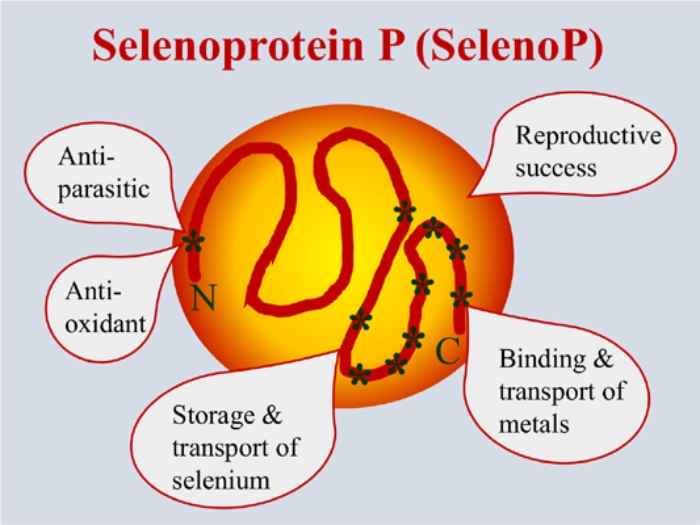FDA Greenlights Innovative Combination Therapy for Aggressive Lymphoma
In a significant development for patients battling relapsed or refractory large B-cell lymphoma (LBCL), the U.S. Food and Drug Administration (FDA) has given its stamp of approval to a new treatment regimen. Pfizer Inc. announced that ADCETRIS® (brentuximab vedotin), when used in combination with lenalidomide and a rituximab product, has been approved for adult patients who have undergone at least two prior lines of systemic therapy and are not candidates for autologous hematopoietic stem cell transplantation (auto-HSCT) or chimeric antigen receptor (CAR) T-cell therapy.
This approval encompasses various subtypes of LBCL, including diffuse large B-cell lymphoma (DLBCL) not otherwise specified (NOS), DLBCL arising from indolent lymphoma, and high-grade B-cell lymphoma (HGBL). The decision marks a pivotal moment for the thousands of patients who face treatment resistance or relapse in their fight against this aggressive form of non-Hodgkin lymphoma.
Dr. Roger Dansey, Chief Oncology Officer at Pfizer, emphasized the significance of this approval, stating, “This development reinforces ADCETRIS’s position as a standard of care with proven overall survival benefits in certain lymphomas. It provides physicians with an alternative to chemotherapy or CAR-T therapies for patients with relapsed or refractory large B-cell lymphoma.”
The FDA’s decision was based on compelling data from the Phase 3 ECHELON-3 study. This clinical trial demonstrated a statistically significant and clinically meaningful improvement in overall survival for patients receiving the ADCETRIS combination compared to those on placebo with lenalidomide and rituximab. Notably, the study included heavily pre-treated patients, some of whom had previously undergone CAR-T therapy, and showed survival benefits regardless of CD30 expression levels.
Dr. Craig Portell, Associate Professor at the University of Virginia and principal investigator of the study, highlighted the challenges faced by LBCL patients. “Many patients endure multiple rounds of chemotherapy and even CAR-T therapy with limited success,” he noted. “ADCETRIS offers a new outpatient treatment option with established safety and efficacy for patients who have experienced setbacks with other therapies.”
LBCL, a type of non-Hodgkin lymphoma, affects B lymphocytes, which are crucial to the body’s immune system. DLBCL, its most common and aggressive form, accounts for over 25% of all lymphoma cases, with more than 25,000 new diagnoses in the United States annually. The high relapse rate and the number of patients requiring third-line therapy underscore the urgent need for effective treatments.
The ECHELON-3 study revealed that the ADCETRIS combination reduced the risk of death by 37% compared to the placebo group. This benefit was consistent across different levels of CD30 expression. The study also showed positive outcomes in overall response rate and progression-free survival.
Safety data from the ECHELON-3 trial aligned with ADCETRIS’s known profile. The most common Grade 3 or higher adverse events in the ADCETRIS arm included neutropenia, thrombocytopenia, and anemia. Peripheral sensory neuropathy was infrequent and generally low-grade in both arms.
Full results from the ECHELON-3 study were published in JCO Oncology Practice on January 7, 2025, and presented at the 2024 American Society of Clinical Oncology (ASCO) Annual Meeting.
Commentary by SuppBase columnist Alice Winters

The FDA’s approval of ADCETRIS in combination with lenalidomide and rituximab marks a significant milestone in the treatment landscape for relapsed or refractory large B-cell lymphoma. This development is particularly noteworthy for several reasons:
1. Unmet Medical Need: The approval addresses a critical gap in treatment options for patients who have exhausted conventional therapies and are ineligible for stem cell transplantation or CAR-T therapy. With over 3,500 patients annually facing this scenario in the U.S., this new combination offers hope where options were previously limited.
2. Efficacy Beyond CD30 Expression: One of the most intriguing aspects of this approval is the efficacy demonstrated regardless of CD30 expression levels. This broadens the potential patient population that could benefit from the treatment, as CD30 expression has traditionally been a limiting factor in the use of brentuximab vedotin.
3. Survival Benefit: The 37% reduction in the risk of death is a substantial improvement over existing therapies. In the realm of aggressive lymphomas, where survival rates can be dismally low for relapsed/refractory patients, this level of benefit is clinically meaningful and potentially life-changing for patients.
4. Outpatient Administration: The ability to administer this treatment in an outpatient setting is a significant advantage. It reduces the burden on healthcare systems and improves the quality of life for patients who can avoid prolonged hospital stays.
5. Safety Profile: The safety data from the ECHELON-3 study suggests a manageable side effect profile, consistent with previous knowledge about ADCETRIS. This is crucial for a patient population that has often undergone multiple rounds of intensive therapy.
6. Alternative to CAR-T: While CAR-T therapy has been revolutionary, it’s not suitable or accessible for all patients. This approval provides an alternative for those who are not candidates for CAR-T or have failed such therapy.
7. Combination Strategy: The success of this combination therapy (ADCETRIS, lenalidomide, and rituximab) highlights the potential of strategic drug combinations in overcoming treatment resistance in aggressive lymphomas.
However, it’s important to note some potential limitations and areas for future research:
1. Long-term Effects: As with any new combination therapy, long-term follow-up will be crucial to understand any delayed effects or long-term toxicities.
2. Cost Implications: The combination of three relatively expensive drugs may raise concerns about treatment accessibility and healthcare costs.
3. Patient Selection: Further research may be needed to identify biomarkers or clinical factors that could predict which patients are most likely to benefit from this combination.
4. Comparison with Emerging Therapies: As the field of lymphoma treatment rapidly evolves, head-to-head comparisons with other novel therapies (like bispecific antibodies) will be valuable.
In conclusion, this approval represents a significant advance in the treatment of relapsed/refractory LBCL. It offers a new lifeline for patients who have exhausted other options and reinforces the value of continued research and development in the field of hematologic oncology. As we move forward, it will be crucial to gather real-world data on the effectiveness and tolerability of this combination to fully understand its place in the treatment landscape of aggressive lymphomas.



